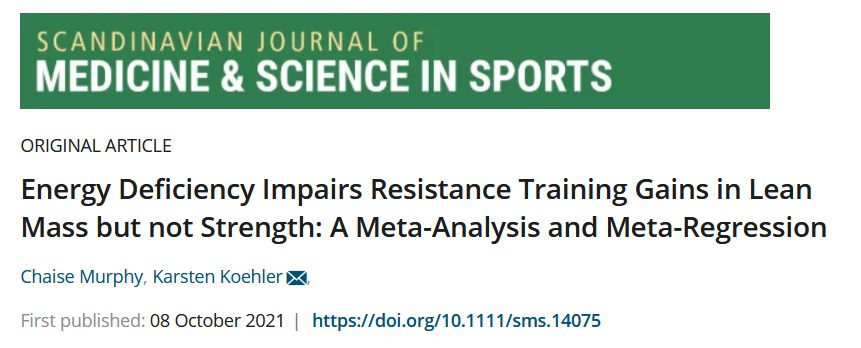How much does cutting influence muscle growth and strength gains? [Study]
A new meta-analysis by Murphy & Koehler (2021) finds cutting reduces muscle growth but not strength development compared to bulking.

The effects of age and sex
Strength vs. size
Strength gains, especially in the short-term, are in large part due to neural improvements in the neuromuscular system and our brain. These adaptations are probably not affected much by energy balance, as they’re more like software updates than building new hardware. However, over the long run the lack of muscle growth should logically impair strength gains. Strength gains may also suffer due to higher fatigue levels when recovery is poorer.
BMI
Conclusion
New study reference
Energy Deficiency Impairs Resistance Training Gains in Lean Mass but not Strength: A Meta-Analysis and Meta-Regression. Chaise Murphy, Karsten Koehler, First published: 08 October 2021. https://doi.org/10.1111/sms.14075
 Want more content like this?
Want more content like this?
Then get our free mini-course on muscle building, fat loss and strength.
By filling in your details you consent with our privacy policy and the way we handle your personal data.
